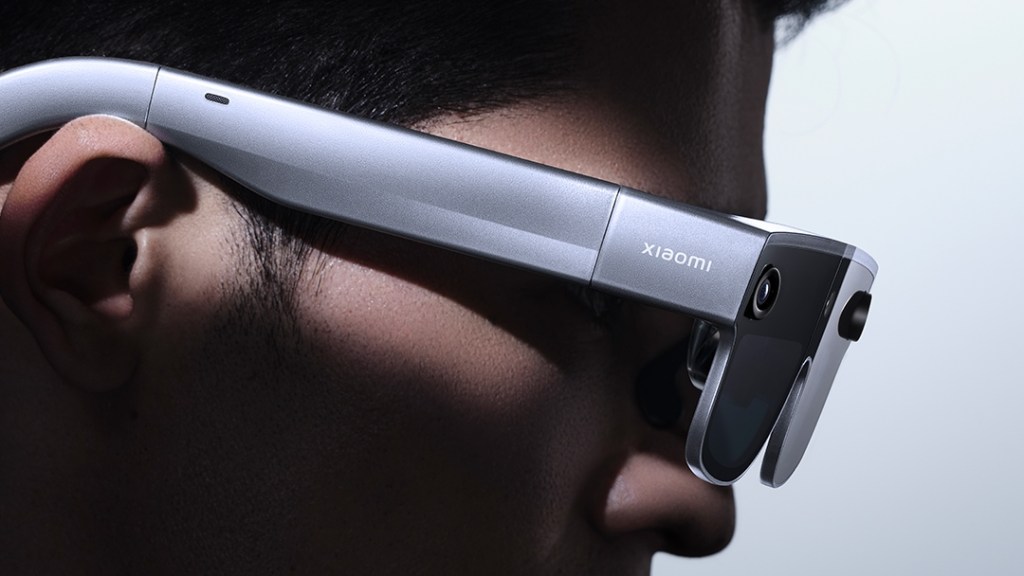While the chatter around the metaverse has slowed down, both social media companies and phone manufacturers have been experimenting with tech that could lead to commercial AR glasses. At the Mobile World Congress (MWC) in Barcelona, Xiaomi unveiled its new prototype Wireless AR Glass Discovery Edition, which weighs 126 grams and has a “retina-level” display.
Xiaomi has used a pair of MicroLED screens with a peak brightness of 1,200 nits and free-form light-guiding prisms to recreate an image. The company said that when PPD (pixels per degree) reaches 60, humans can’t perceive individual pixels. The Xiaomi AR glass display boasts 58 PPD, so that’s close enough.
Xiaomi said it is using electrochromic lenses to adjust viewing in different light conditions. The glasses also have a complete blackout mode for a fully immersive experience — kind of making it like a VR headset.
The new AR glasses connect wirelessly to your phone, which should be a Xiaomi 13 series phone or any other Snapdragon Spaces-ready phone like the OnePlus 11. The device is using Xiaomi’s own communication link to achieve full link latency as low as 50ms.
Boasting a retina-level near-eye display for AR glasses, Xiaomi Wireless AR Glass Discovery Edition delivers a truly immersive visual experience. Moreover, our self-developed Xiaomi AR Gesture Control empowers effortless control between virtual and real space. pic.twitter.com/EipqBWxkpW
— Lei Jun (@leijun) February 27, 2023
Xiaomi’s latest AR device uses Qualcomm’s Snapdragon XR 2 Gen 1 platform with support for the Snapdragon Spaces XR development platform to run different applications. Notably, the Meta Quest Pro announced last year also uses the same chip.
The company said that using the Mi Share’s application streaming capability, the AR glasses can let viewers watch content through apps like TikTok and YouTube. Users can rely on gestures to move around the interface and even interact with real-life objects. For instance, the device lets you turn on or turn off a smart lamp or “grab” a screencast from the TV to the glasses using gestures.
While all these features sound great on paper, it’s still a prototype. So it’s hard to tell how well the glasses fare in a real-world scenario.
Smartphone companies are still continuing to show off AR glasses in different shapes and forms, even if they are not available to all users. Xiaomi’s domestic rival Oppo is also showcasing its Air Glasses 2 — which were launched in China last year — at MWC. Naturally, all eyes are on Apple, which could reportedly unveil its mixed reality headset at the Worldwide Developer Conference (WWDC) in June.
Xiaomi launched a bunch of devices at the event including the new the Xiaomi 13 Pro with a 1-inch camera sensor along with the 13 and the 13 lite. Plus, it announced the new Xiaomi Buds 4 Pro, Xiaomi Watch S1 Pro, and Xiaomi Electric Scooter 4.
































Comment